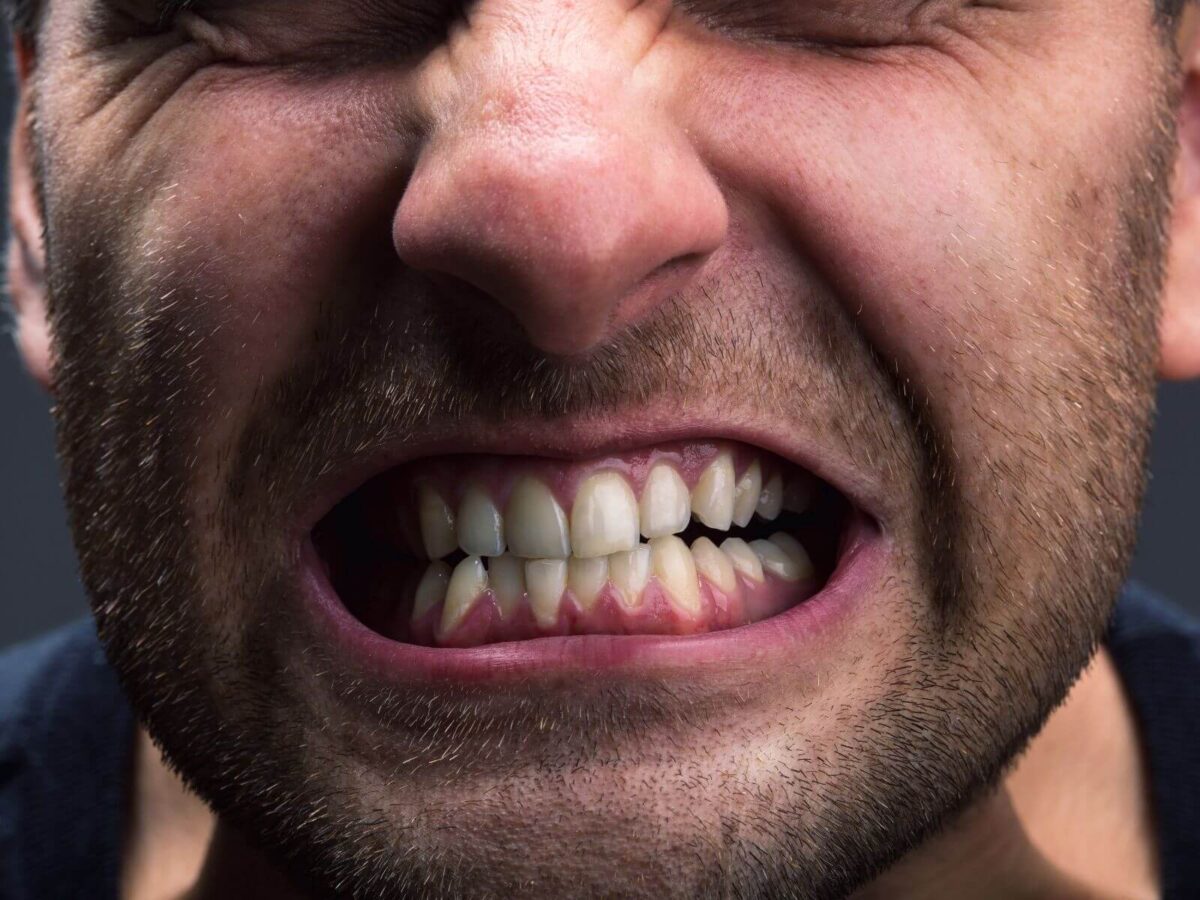Blog
Dental hygiene tips for healthy teeth & gums

How Can My Dentist Tell If I Grind My Teeth?
Bruxism, also known as tooth grinding or clenching, is another common problem. Bruxism is not usually treated; however, it could cause issues like pain sensitivity or harm to the enamel if it isn’t always addressed.
It becomes tough sometimes to discover whether or not you have bruxism because it usually takes place in the night when you are sleeping. Some people do not recognize bruxism until they visit a dentist. Dentists apprehend the signs of tooth grinding and inform you what you can do about it.
What is Bruxism?
Bruxism is an involuntary contraction of the jaw muscle groups that may result in enamel clenching, grinding, bracing, or thrusting the lower jaw out. The vast subtypes of bruxism are based totally on whether or not you’re asleep or wakeful.
Sleep Bruxism
Diagnosis and prevention of sleep bruxism is a little extra complex than awake bruxism as it takes place unconsciously at night time. The person cannot prevent or stop grinding during this period. The severity of sleep bruxism may only be known when other household or dentist members notice the sound or signs of the problem.
Awake Bruxism
Awake bruxism is a conscious process, which, however, may also be non-conscious or even purposeful. Although the complaints of bruxism are reported by approximately 8-12% of the population, mild, occasional awake bruxism can occur in up to 20% of otherwise asymptomatic individuals.
What Causes Teeth Grinding?
People may grind or clench their teeth for many reasons, including psychological and physical causes or as a medical condition or medication side effect. These causes may include:
- Feelings of stress or anxiety
- Concentration
- Dehydration or malnutrition
- Uneven or misaligned teeth
- Disorders related to the jaw and the temporomandibular joint.
- Illnesses include epilepsy or Parkinson’s disease
- Medications, particularly some antidepressants or antipsychotics
- Drinking alcohol, drinking coffee, smoking, or taking any form of illicit substances.
- Teething in children
- Dentists will seek to know all the potential causes of bruxism and inappropriate treatments.
Symptoms of Bruxism That Dentists Detect
Many adults clench their jaw or grind their enamel in their sleep, so they’ll not understand they’re doing it. It’s essential to visit the dentist’s workplace frequently if you to spot any signs of the subsequent:
Headaches
Bruxism is a situation whereby you clench or grind your tooth, especially at some point in your sleep. This conflict can make those with this condition suffer from regular headaches, including waking up with them. Night-time use of a mouth protector will help reduce clenching, bruxism, and headaches.
Jaw Issues
Bruxism can lead to jaw issues. Sometimes, this condition may cause Temporomandibular joint (TMJ) disorder. This is where your lower jawbone meets the skull to allow chewing. The pressure applied in contraction with bruxism can lead to TMJ disorder and cause pain in the jaw. Further, bruxism affects one’s masseter muscle, making the jaw appear wider and have a square-shaped face.
Damaged Teeth
The teeth-grinding process puts pressure on the enamel part, which is protective and wears out quickly. This can result in reduced and flattened crowns, cracks, and breakages, particularly if you have crowns or former restorative work. Our staff of specialists is ready to restore your damaged teeth and come up with a treatment plan to stop bruxism and similar problems.
Tooth Sensitivity
If you have bruxism, then your tooth can also already be chipped, cracked, or worn down, and you may feel that you can chip them with simply the slightest amount of force. This is mostly a result of cracks at the tooth because heat, cold, and bacteria can easily enter the tooth.
Anytime you notice this sign, our specialist will be able to evaluate the level of harm caused and guide you on whether you need a root canal procedure or a dental crown to eliminate bacteria and strengthen the teeth and gums.
Treatments for Teeth-grinding
If your dentist has diagnosed you with bruxism, they will tell you the ways to solve this.
Pressure from the bruxism may be too much or too little. Depending on this, the treatment can include several techniques, and you might have to see different specialists. It Is important to know that there is no need to seek treatment for bruxism when it is not severe and may result from other factors that will likely change with time.
Relaxation Exercises
Awake bruxism is believed to stem from stress or anxious feelings. In that case, your dentist might prescribe relaxation measures and exercises such as mindfulness and meditation that can be done at home and may aid in preventing or halting grinding. In other situations, your dentist may conclude that you must see a therapist who can diagnose and treat disorders like these.
Modifying Sleep Habits
Sleep bruxism could be more likely to develop if you have poor-quality sleep. Measures should, therefore, be taken to alter some of the behaviors that affect sleep to eradicate teeth grinding at night. Based on their recommendation, your dentist may advise you on how to improve your sleep or recommend a specialist to advise you on this.
Nightguard
If sleep bruxism makes you uncomfortable or your teeth suffer, your dentist may prescribe wearing an occlusal splint or night guard. This is designed to comfortably wear over the teeth like a mouth guard and stop them from grinding during the night. Mouthguard can help control the signs of bruxism, which would prevent additional harm and shield dental prostheses, but the underlying cause of the affliction may require other treatments.
Dental Treatments
If an unequal occlusion can produce bruxism or has produced a fracture or wear on your teeth, your dentist can make proposals concerning the corresponding treatments. This could entail extracting troublesome teeth, like wisdom teeth, employing orthodontic therapy to fix a crooked bite, or using fillings or crowns to restore old, broken, or uneven teeth.
Medical Interventions
Your dentist will send you to your physician or another appropriately competent individual who can offer the care you require if teeth grinding is believed to be associated with an underlying medical issue.
Medicines
Although there is conflicting evidence about the efficacy of bruxism drugs, some research suggests that cosmetic injections to the jaw muscles may lessen TMJ pain.
Conclusion
Depending on their risk factors, these therapies only work as a temporary solution and may not be suitable for every patient. Make an appointment with our staff at Rio Bravo Dental if you’re concerned about teeth grinding or any other issues involving your jaws or teeth.


